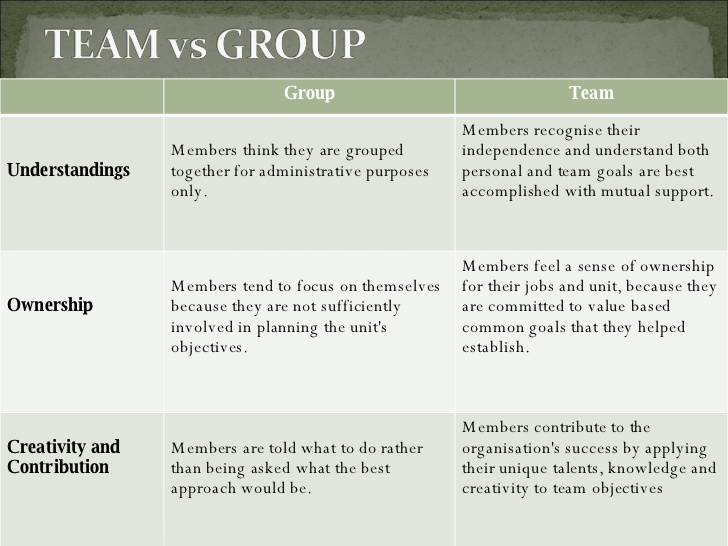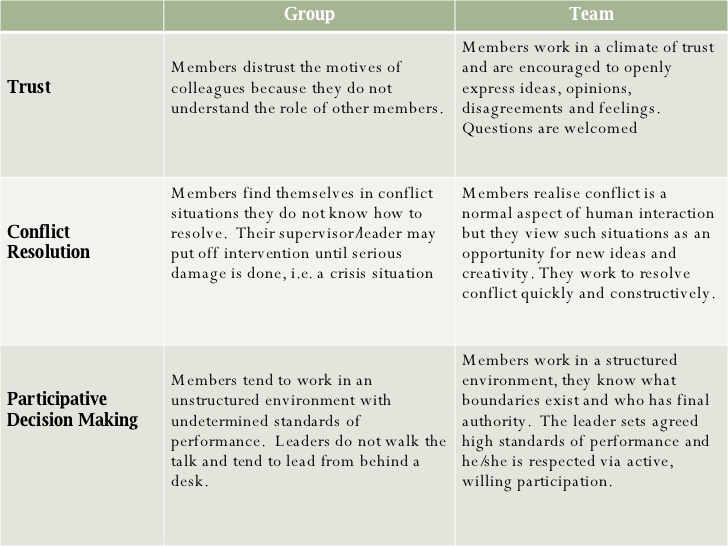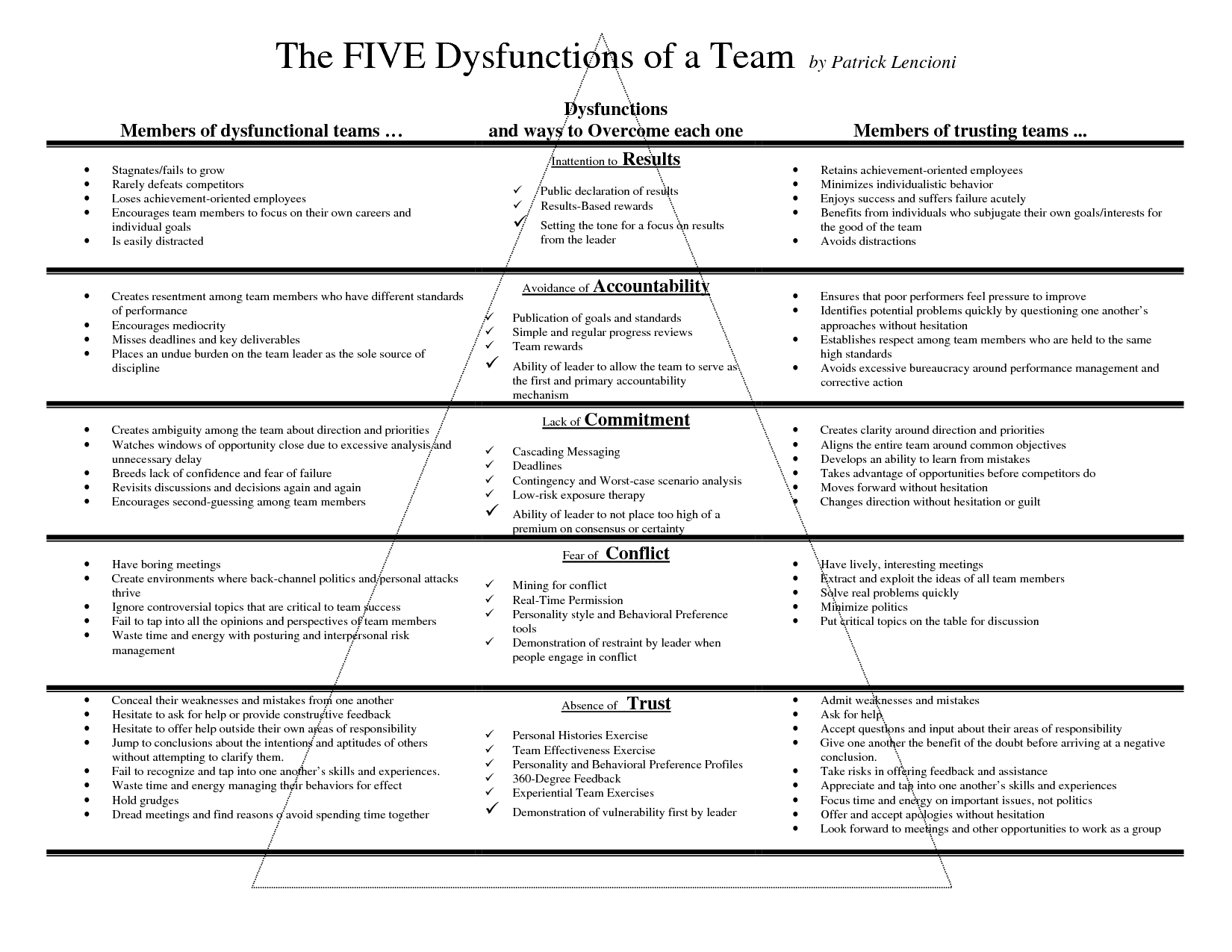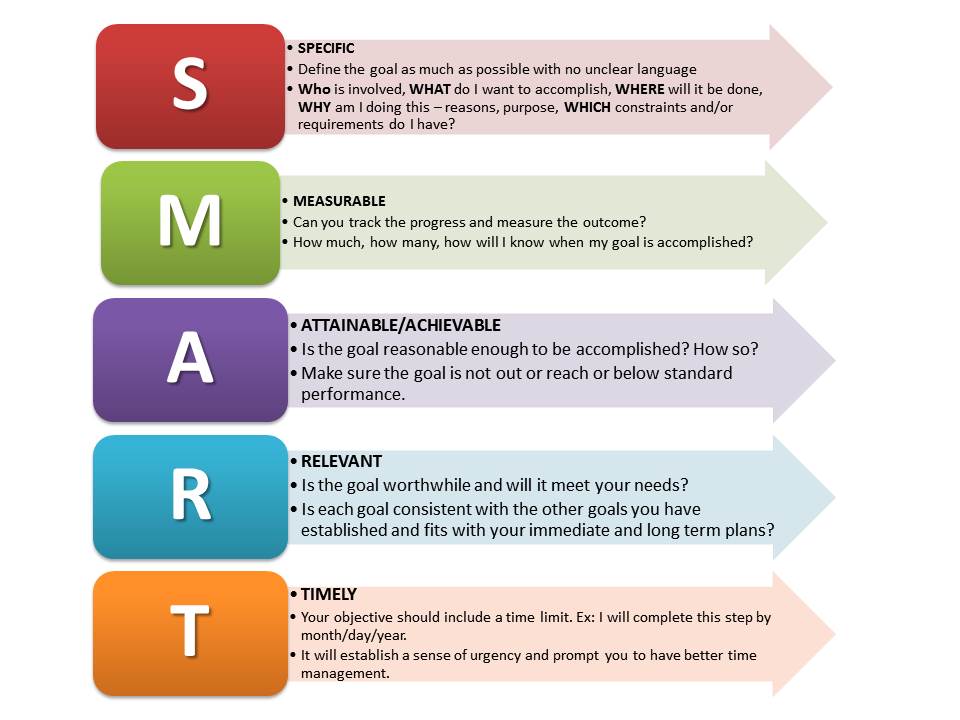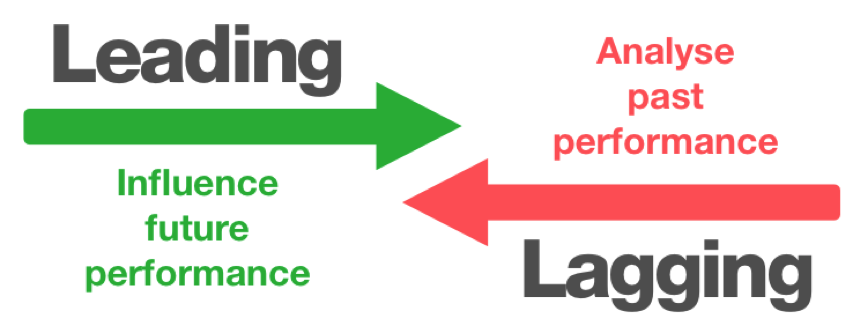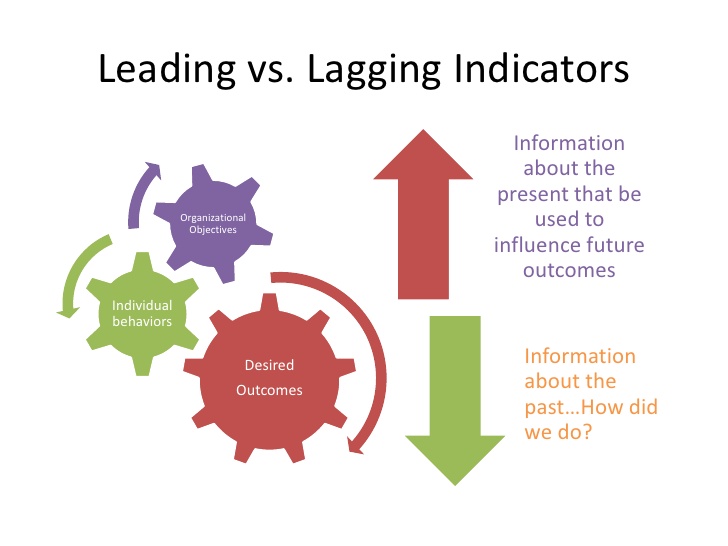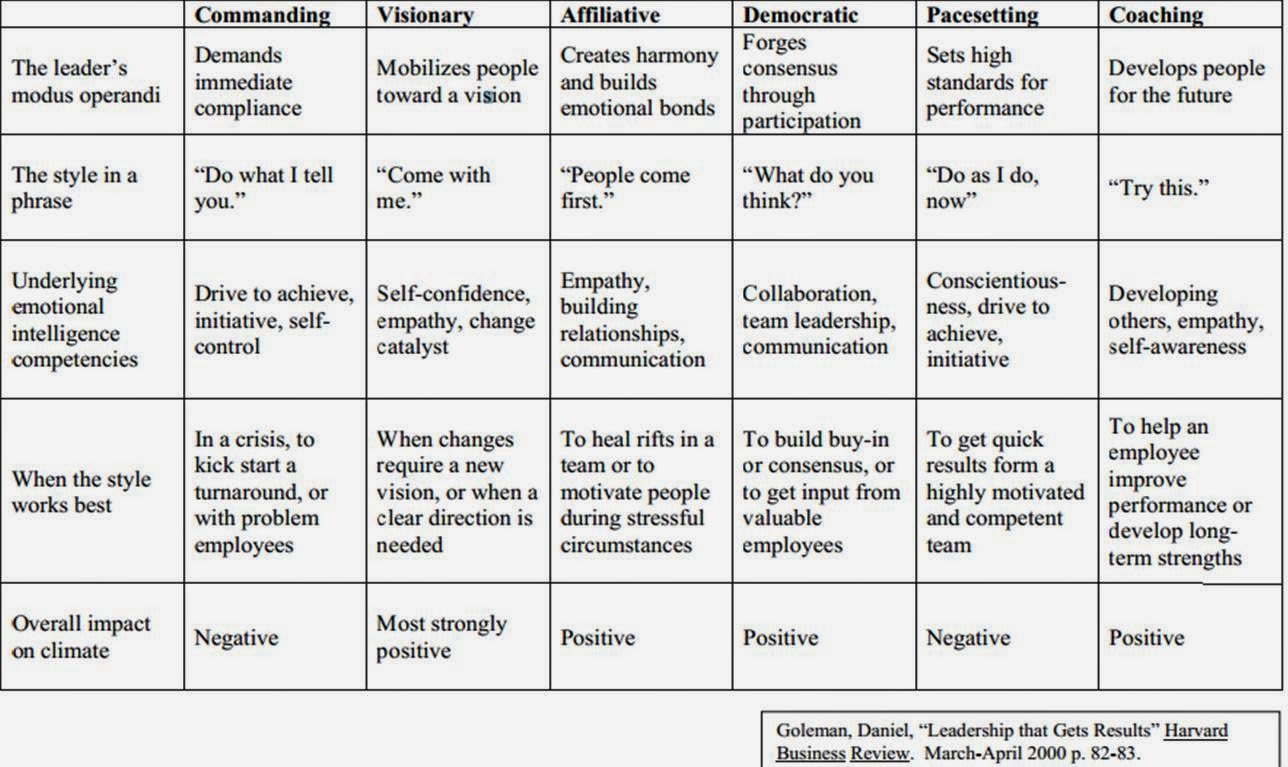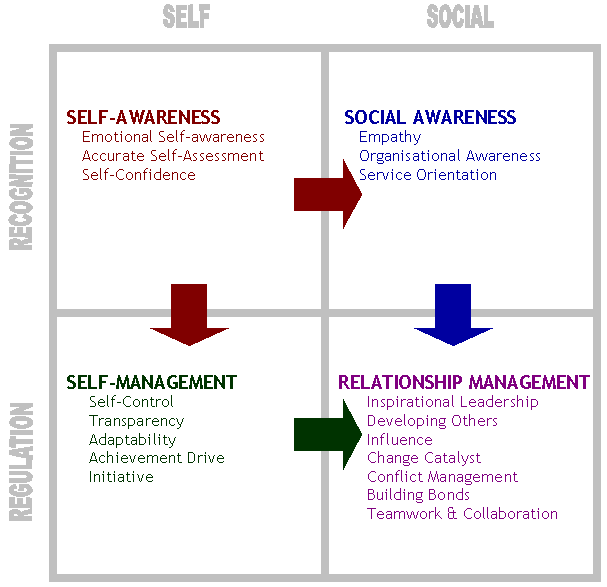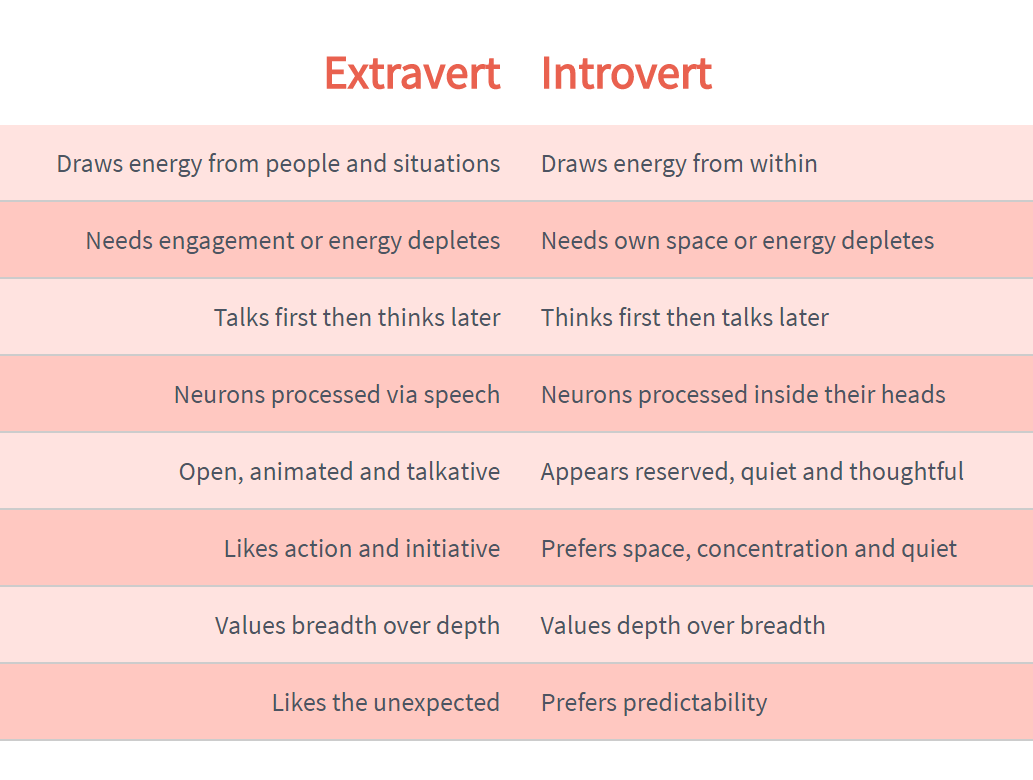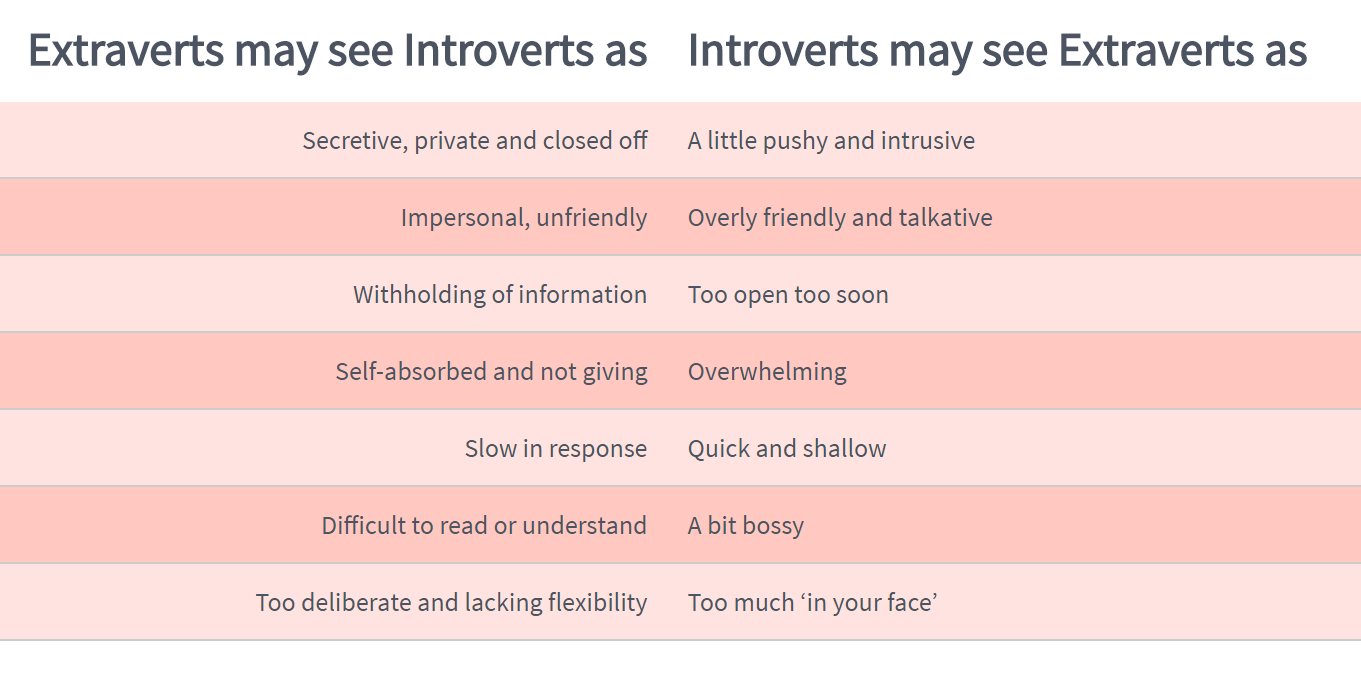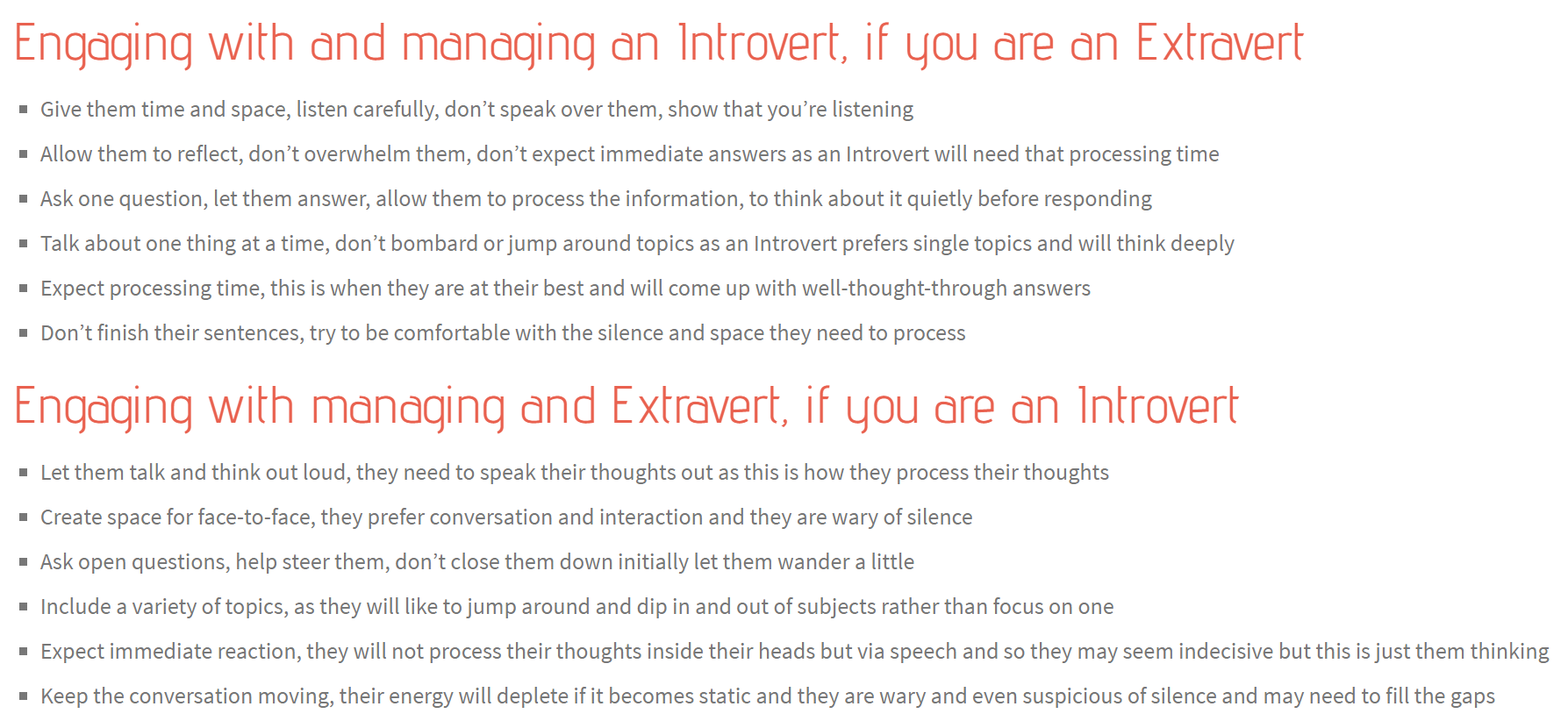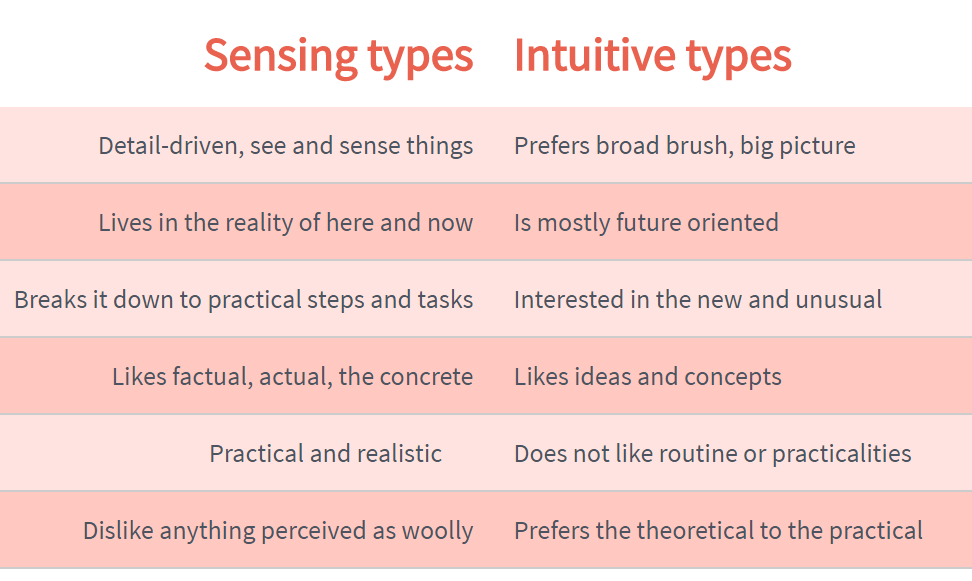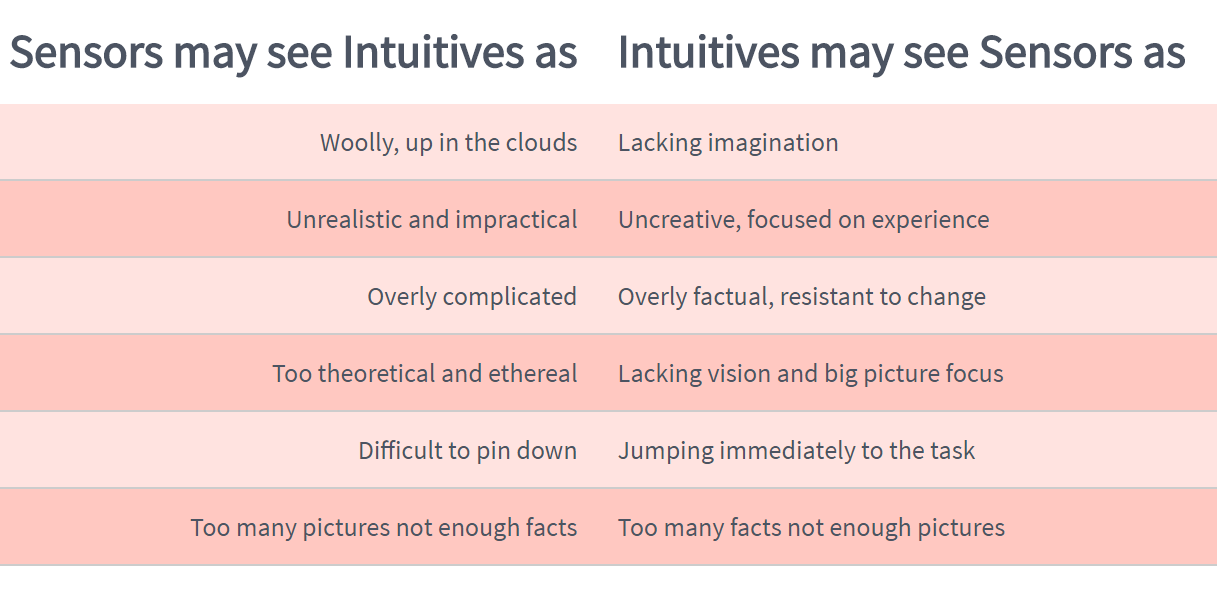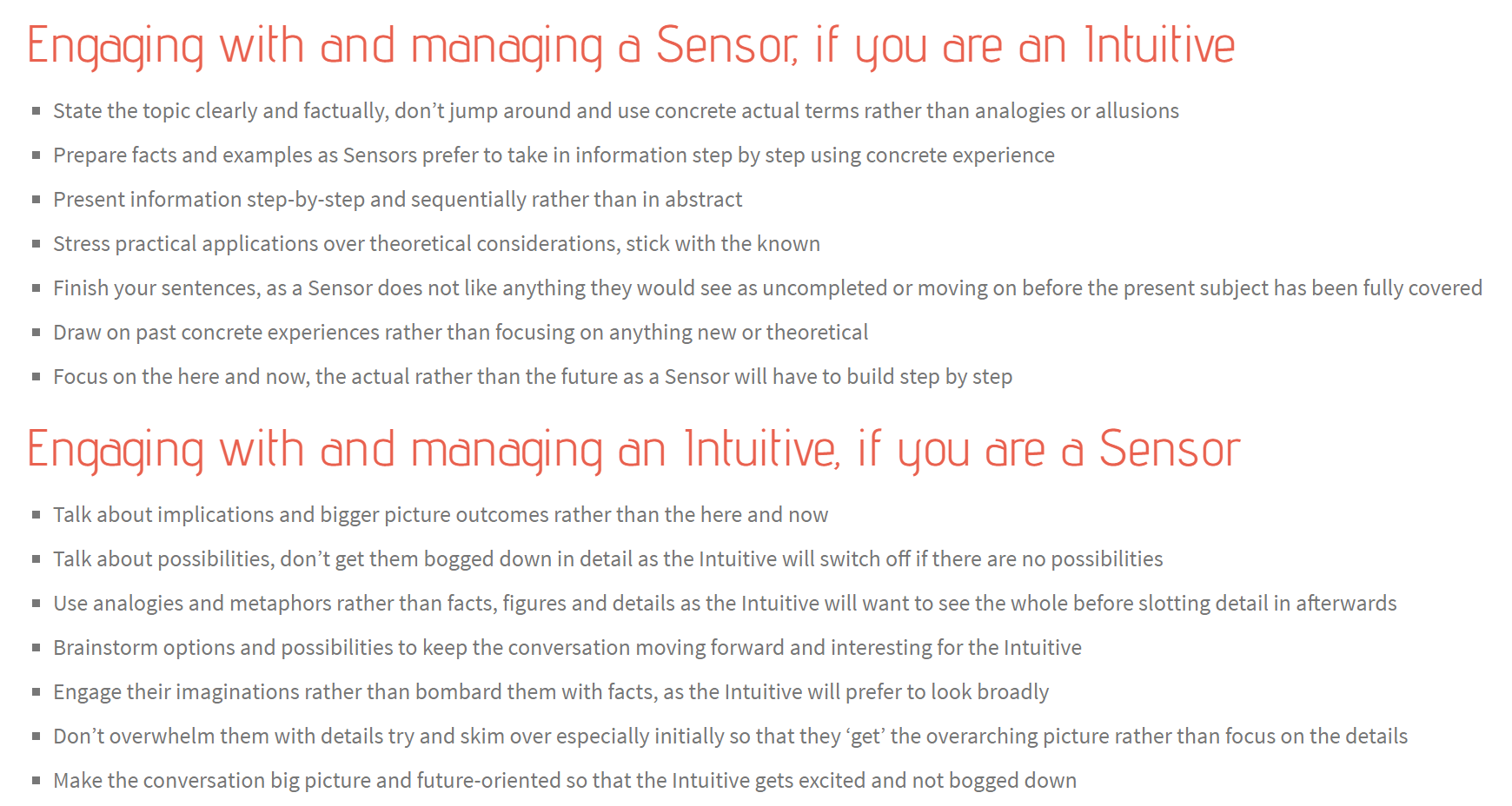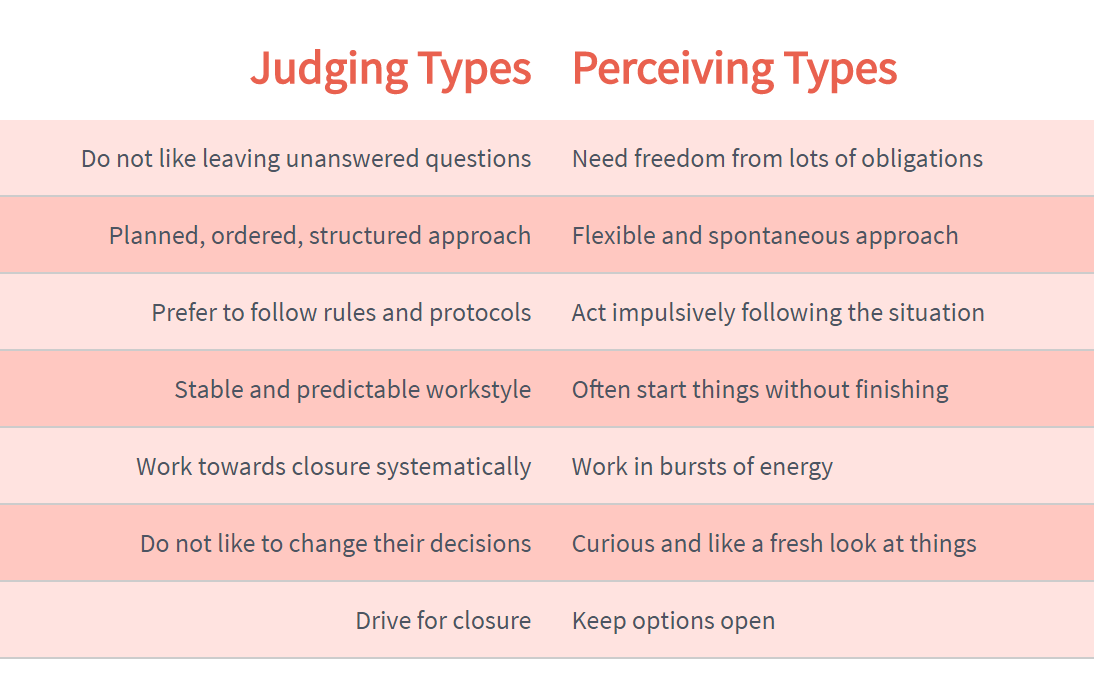**This is an old revision of the document!**
Teamwork
Conflict
It's good!
SMART GOALS
Leading and Lagging Indicators
Leadership Styles
Emotional Intelligence
Personalities
This is the MBTI. It has been around since the 1920s and still being researched. One of the oldest research in history.
Take your personality, know your strengths and weaknesses. https://www.16personalities.com/
Go to the next step and learn about your team members personality archetypes, understand their strengths and weaknesses.
You will be able to cover each other's weaknesses, which creates synergy.
Short Version & Guide
Read more about the differences in personalities: https://www.16personalities.com/articles/our-theory
You do not need to remember all of this stuff. The point is people are different from one another because we are “wired” differently. Individuals do not do things to just annoy one another.
Introverts vs Extroverts
Introverted individuals prefer solitary activities and get exhausted by social interaction. They tend to be quite sensitive to external stimulation (e.g. sound, sight or smell) in general. Do not get this confused with shyness.
Extraverted individuals prefer group activities and get energized by social interaction. They tend to be more enthusiastic and more easily excited than introverts.
Introverts need to a chance to speak up - Ask individual members if they have anything they want to add. Gives them a chance to speak up as extroverts tend to dominate the conversations. Introverts tend to give great insight to topics and conversations.
https://www.16personalities.com/articles/mind-introverted-vs-extraverted
http://www.preludecharacteranalysis.com/explore/extravert-vs-introvert
Observant/Sensing vs Intuitive
Observant or Sensing individuals are highly practical, pragmatic and down-to-earth. They tend to have strong habits and focus on what is happening or has already happened.
Intuitive individuals are very imaginative, open-minded and curious. They prefer novelty over stability and focus on hidden meanings and future possibilities.
https://www.16personalities.com/articles/energy-intuitive-vs-observant
http://www.preludecharacteranalysis.com/explore/sensing-vs-intuitive
Thinking vs Feeling
Thinking individuals focus on objectivity and rationality, prioritizing logic over emotions. They tend to hide their feelings and see efficiency as more important than cooperation.
Feeling individuals are sensitive and emotionally expressive. They are more empathic and less competitive than Thinking types, and focus on social harmony and cooperation.
https://www.16personalities.com/articles/nature-thinking-vs-feeling
http://www.preludecharacteranalysis.com/explore/thinking-vs-feeling
Judging vs. Perceiving
Judging individuals are decisive, thorough and highly organized. They value clarity, predictability and closure, preferring structure and planning to spontaneity.
Prospecting individuals are very good at improvising and spotting opportunities. They tend to be flexible, relaxed nonconformists who prefer keeping their options open.
This will be the biggest issue for each individual to each other. Usually the biggest point of conflict. Extreme examples: Highest judging people will have every minute of their day planned and every detail in a project accounted for. Highest prospecting individuals will probably be late to everything but highly adaptable and flexible.
https://www.16personalities.com/articles/tactics-judging-vs-prospecting
http://www.preludecharacteranalysis.com/explore/judging-vs-perceiving
